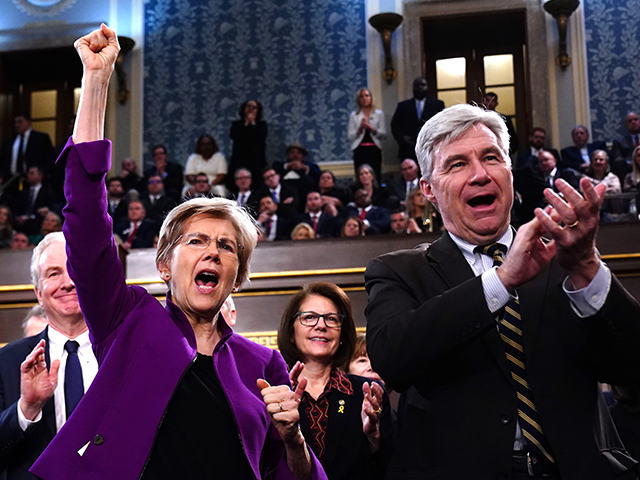Whose Afraid of the Biden-Harris Economy?
If the Biden-Harris administration’s policies are not hurting the economy, why are prominent Democrats urging the Federal Reserve to announce a super-sized interest rate cut?
Three Democrat U.S. Senators on Monday sent a letter to Fed Chairman Jerome Powell urging the central bank to slash its interest rate target by three-quarters of a percentage point, arguing that “now is the time to swiftly” reduce interest rates and warning that “it may already be too late.”
“If the Fed is too cautious in cutting rates, it would needlessly risk our economy heading towards a recession,” Senators Elizabeth Warren, Sheldon Whitehous, and John Hickenlooper said in a letter addressed to Powell. “The Committee must consider implementing rate cuts more aggressively upfront to mitigate potential risks to the labor market.”
The History of Big Cuts Isn’t Pretty
Such a large cut would not be unprecedented. But typically when the Fed starts cutting rates, the economy is already on the rocks. And even in recessions, the Fed usually proceeds slowly.
Prior to the pandemic, the last time the Fed cut rates by 75 basis points or more was 2008. Before that, you have to go all the way back to 1984, when the Fed cut the effective fed funds rate from 11.30 percent to 9.99 in October and then from 9.43 percent to 8.38 percent in December. Those Reagan-era reductions came before the modern era of explicit fed funds target, when the Fed left the market guessing about what it was up to when it came to interest rate policy.
It’s hard to see what could justify such a dramatic cut today. Indeed, the call for a cut looks very political. The senators appear to want the Fed to effectively and decisively declare that the inflation crisis of the Biden era is over just eight weeks ahead of the presidential election.
But a super-sized cut would likely communicate much more than that. In the words of the senators, a cut of that size would indicate that the Fed believed a sudden lurch in rates is necessary to “avoid sliding towards a potential crisis.” That would not be a vote of confidence in the Biden-Harris economy.
The wags of X are, however, having some fun with the idea that “bigger is better” when it comes to cuts.
Wall Street Bets on a 50 Basis Point Cut
Wall Street sees no chance of a cut that large occurring. But bets on interest rate policy in the fed funds futures market indicate a better-than-even chance of a 50 basis point cut. As of Monday afternoon, just two days before the Fed’s announcement, traders had priced in a 61 percent chance of a half a percentage point cut and just a 49 percent chance of a quarter-point cut. Yields on two-year Treasuries, which are particularly responsive to expectations around Fed policy, fell 0.015 percent on Monday to the lowest level in two years.
Starting with a big cut—Wall Street likes to call it “front-loading” the cuts—would also create a strange asymmetry. When the Fed finally began hiking interest rates in March of 2022, it began with just a one-quarter of a point hike. It then moved on to a half-point hike before arriving at the series of four 75 basis point increases it implemented. If the Fed felt it needed to proceed cautiously despite the obviously escalating inflation problem back then, why would it rush now?
A large cut would also increase the error cost if inflation turns out not to continue to decline toward two percent. If the Fed had to reverse a few 25 basis point cuts because inflation reignited, that would cause some financial turmoil. If it has to reverse itself after a very large cut, that could undermine confidence in the Fed’s competence. A smaller cut, in other words, has a lot less reputational risk for the Fed.
A cynic might say that the Democrat senators are well aware that there is no chance the Fed will cut interest rates as much as they are demanding. But by asking for a big cut now, they may be looking to purchase some reputational insurance for themselves if the economy does trip into a downturn next year. They’ll be able to argue that it was not the Democrat policies of Biden-Harris that caused the slump but the Fed’s over-cautious approach.

COMMENTS
Please let us know if you're having issues with commenting.